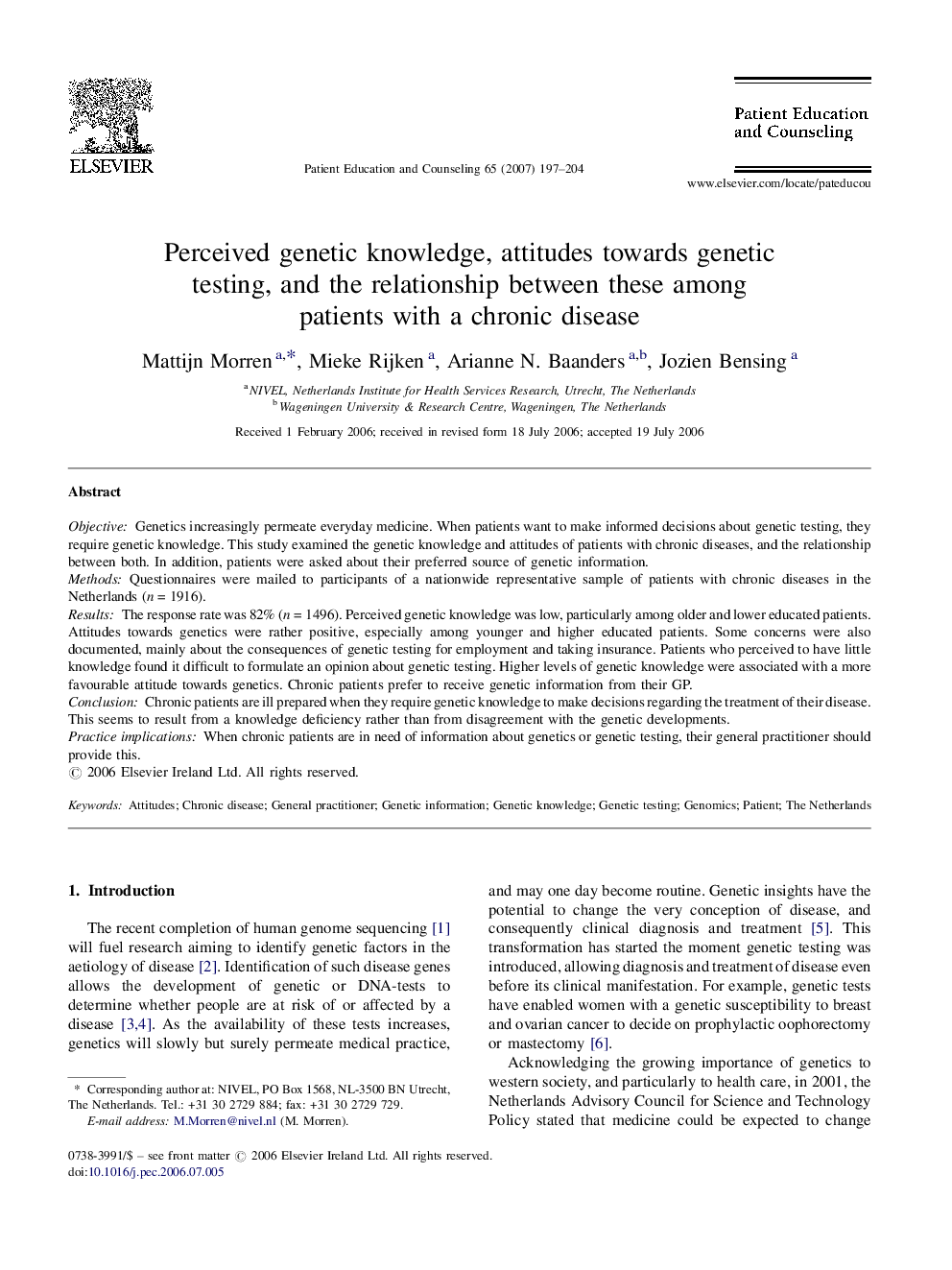| Article ID | Journal | Published Year | Pages | File Type |
|---|---|---|---|---|
| 3814451 | Patient Education and Counseling | 2007 | 8 Pages |
ObjectiveGenetics increasingly permeate everyday medicine. When patients want to make informed decisions about genetic testing, they require genetic knowledge. This study examined the genetic knowledge and attitudes of patients with chronic diseases, and the relationship between both. In addition, patients were asked about their preferred source of genetic information.MethodsQuestionnaires were mailed to participants of a nationwide representative sample of patients with chronic diseases in the Netherlands (n = 1916).ResultsThe response rate was 82% (n = 1496). Perceived genetic knowledge was low, particularly among older and lower educated patients. Attitudes towards genetics were rather positive, especially among younger and higher educated patients. Some concerns were also documented, mainly about the consequences of genetic testing for employment and taking insurance. Patients who perceived to have little knowledge found it difficult to formulate an opinion about genetic testing. Higher levels of genetic knowledge were associated with a more favourable attitude towards genetics. Chronic patients prefer to receive genetic information from their GP.ConclusionChronic patients are ill prepared when they require genetic knowledge to make decisions regarding the treatment of their disease. This seems to result from a knowledge deficiency rather than from disagreement with the genetic developments.Practice implicationsWhen chronic patients are in need of information about genetics or genetic testing, their general practitioner should provide this.
